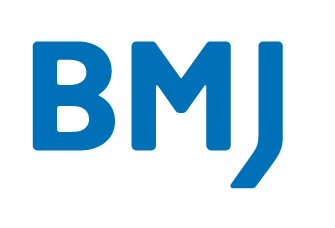Should sugary drinks carry a health warning?
Date published: 28 May 2014

BMJ is a healthcare knowledge provider that aims to advance healthcare worldwide by sharing knowledge and expertise to improve experiences, outcomes and value
In a personal view published on bmj.com, a professor of public health at a leading university thinks there should be health warning labels on sugary drinks.
Professor Simon Capewell, professor at the University of Liverpool, highlights that the State of California is considering a new health bill; one which will see sugary drinks labelled with health warnings, vending machines to bear warning labels, and "fines of between $50 and $500 per failed inspection”.
Professor Capewell thinks this is a good idea, and one that the UK public would support.
He says that many other harmful products already carry warnings such as insecticides, other toxic products and cigarettes – the effectiveness of which he says is “now agreed by almost everyone”.
Professor Capewell believes that public support for warnings is high, suggesting that labelling is feasible.
"A recent BBC survey found that 60% of adults would support health warnings similar to those on cigarette packets on food packaging. Even more, 70%, would support “banning sugary drinks in UK schools, or limiting the amount of sugar allowed in certain foods”.
He says that sugar is “increasingly being implicated as a specific causal factor” for overweight, obesity and heart disease and "current UK and US obesity policies are failing to reverse obesity trends”.
He wonders whether “’calorie control’ strategies could learn from previous successful lessons in tobacco control and alcohol control”.
Professor Capewell says the industry is now moving positively. The campaigning group Action on Sugar has recently persuaded Tesco to “write to all suppliers asking them to remove all added sugars from children’s soft drinks”, while the Co-op “also plan to slash added sugar from products” with Asda agreeing “that innovation of healthy new products was ‘fundamental’”.
He says that warning labels represent an “interesting natural experiment” that “may offer an effective new strategy to complement existing, potentially powerful interventions like marketing bans and sugary drinks duties”.
Professor Capewell concludes that “proposals may herald a tipping point in public attitudes and political feasibilities” and that “investors, industrialists, and international health groups will all be watching closely”.
Do you have a story for us?
Let us know by emailing news@rochdaleonline.co.uk
All contact will be treated in confidence.
Most Viewed News Stories
- 1Schools in Rochdale borough to become vape free settings
- 2Historic England ‘disappointed’ by the spat over Hopwood Hall
- 3Consequences of impending landline switch off revealed in new survey
- 4Sports club music festival to go ahead despite neighbours’ fears
- 5Police officer from Rochdale sentenced for sexually assaulting colleagues
To contact the Rochdale Online news desk, email news@rochdaleonline.co.uk or visit our news submission page.
To get the latest news on your desktop or mobile, follow Rochdale Online on Twitter and Facebook.

